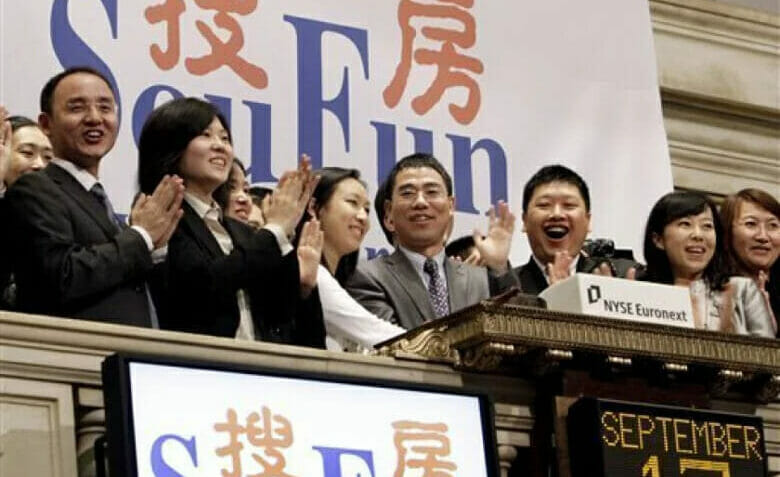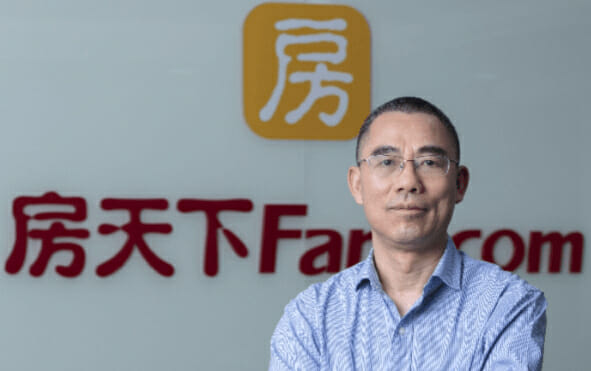
Fang precursor Soufun went public in New York in 2010 and was delisted last year
The chairman of Beijing-based real estate portal Fang Holdings has made an offer to take the company private at a nearly 210 percent premium to the stock’s last trading price before the proposal was announced.
Richard Dai submitted a preliminary non-binding offer to acquire the American depositary shares he does not already own for $6.19 each, Fang said Monday in a release. The company’s shares, which trade on over-the-counter markets after being delisted from the NYSE last year, closed at $2.00 on Friday and rose 150 percent to $5.00 in resumed trading on Tuesday.
“I intend to fund the proposed transaction with cash on hand,” Dai said in a letter to the Fang board dated 4 September, adding that the company’s business would continue to be run in a manner “that is generally consistent with its current operations” after the proposed transaction.
The former president and CEO of Fang precursor Soufun Holdings, Dai succeeded company founder Vincent Mo as chairman last year after Mo stepped down for personal reasons. At the time, Fang was under pressure from the NYSE for its failure to file audited financial statements since 2019, ultimately leading to its ejection from the exchange.
Eclipsed by Rivals
Mo started Fang as Soufun.com in 1999 to provide a search engine for residential listings. He built the business into China’s largest online real estate platform, but it was eclipsed by new competitors like Warburg Pincus- and Tencent-backed Beike, as well as local classifieds platform 58.com and its property listing affiliate, Anjuke.

Fang founder Vincent Mo stepped down as chairman last year
After a 2010 IPO, Fang’s business model of selling banner ads to cash-rich developers started to suffer in 2014 when China’s property market entered a period of slower growth and greater risk. To counter this shift, Fang sank cash into creating its own network of agency offices, hoping to expand beyond selling listings.
The company also launched a price war with offline agents by offering to facilitate deals at a 0.5 percent commission rate — the lowest in the industry — to attract homebuyers. The strategy undermined Fang’s relationships with traditional intermediaries, who then boycotted the platform, further driving down the company’s ad revenue.
In 2017, Fang publicly acknowledged the failure of its transformation and announced a return to its traditional advertising strategy, but revenue from its listings and marketing services continued to shrink.
In early 2019, Mo stepped aside as Fang’s CEO in favour of the company’s president, Jian Liu, after revenue fell 25.5 percent year-on-year in the third quarter of 2018. Mo had stepped back into the top executive position at Fang in 2014 when Dai resigned to pursue studies at Stanford University after leading the company’s operations for eight years.
Shaky Ground
At the time of Fang’s last annual report for 2019, Mo still owned more than 71 percent of the company.
In 2020, a venture capital investor, Evenstar Master Fund SPC, sued Fang and Mo for what it alleged was self-dealing on the former chairman’s part. According to the complaint, Mo set up a charitable foundation in the US that Fang paid money into, but the funds instead were used to buy mansions in New York’s Hudson Valley for Mo’s family.
In 2021, Fang subsidiary China Index Holdings was warned by the NASDAQ over failure to file an annual report for the previous year. Fang took the analytical unit private last year.
Leave a Reply